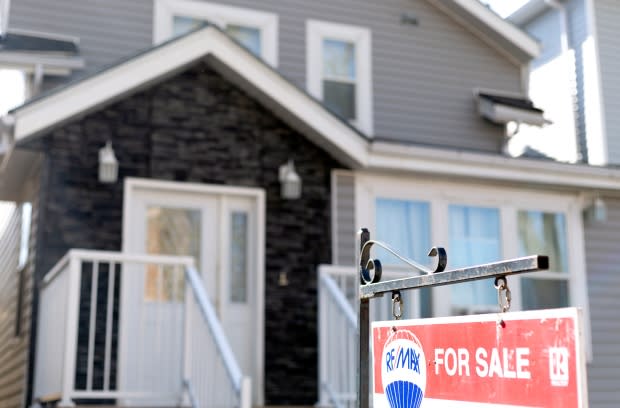St. John's housing prices will lead country in growth, according to Moody's
For homeowners in St. John's it may seem like a long time coming, but Moody's Analytics is forecasting housing prices to increase by more than six per cent over the next few years and lead the country in growth.
There are two main reasons for the forecasted rise: how low house prices are, and the improving unemployment rate, said director and head housing economist Andres Carbacho-Burgos.
The first is where house prices sit, compared to the $340,000 mark for single family homes in late 2015.
"Now they're at less than $300,000, that's over a 10 per cent decline," which Carbacho-Burgos said has led prices in St. John's to be "below trend."

When asked if that decline over recent years is simply a correction for a previously hot housing market, Carbacho-Burgos said "probably not."
"The unemployment rate and the labour market in St. John's have improved significantly in recent months, and we expect it to remain that way for at least a couple of years," he said.
That's the second reason for the predicted rise in prices.
For example, Carbacho-Burgos said the unemployment rate in the province's capital city averaged around 9 per cent from mid-2016 to late 2018, whereas it's now below 8 per cent and expected to lower.
"The fact that the unemployment rate was at a cyclical high in 2016 to 2018 makes me wonder whether or not there was truly a hot housing market in St. John's as opposed to, possibly, the housing stock being displaced by new homes."
Market corrects itself
Carbacho-Burgos told CBC Radio's On the Go that Moody's expects a reduction in new home construction to eventually affect those prices as well.
"When house prices are below what we calculate as trend, you get a couple of correction mechanisms," mainly a slow in construction which tightens the supply of houses, he said.
At 12 to 14 months of sales, MLS listings indicate the ratio of inventory to sales in St. John's "is much higher than the Canadian average, and it's the reason why house prices in St. John's are way below trend."

Along with fewer new homes being built, he said homeowners tend to keep houses off the market when prices are low. That should mean overall fewer homes for sale, tightening supply and helping prices go up.
But what about the falling prices of oil and gas in all of this?
"We believe the effect will be limited, in part because Newfoundland and Labrador in general has already had a significant degree of outmigration over the past three to four years, so it's hard to see this getting worse until energy prices really, really fall below our forecast," said Carbacho-Burgos.
He said we would need to hit the unlikely "low oil price scenario," in which world oil prices are below US $40 a barrel, compared to the over US $50 forecast, for outmigration from this province "to really accelerate."
Read more from CBC Newfoundland and Labrador

